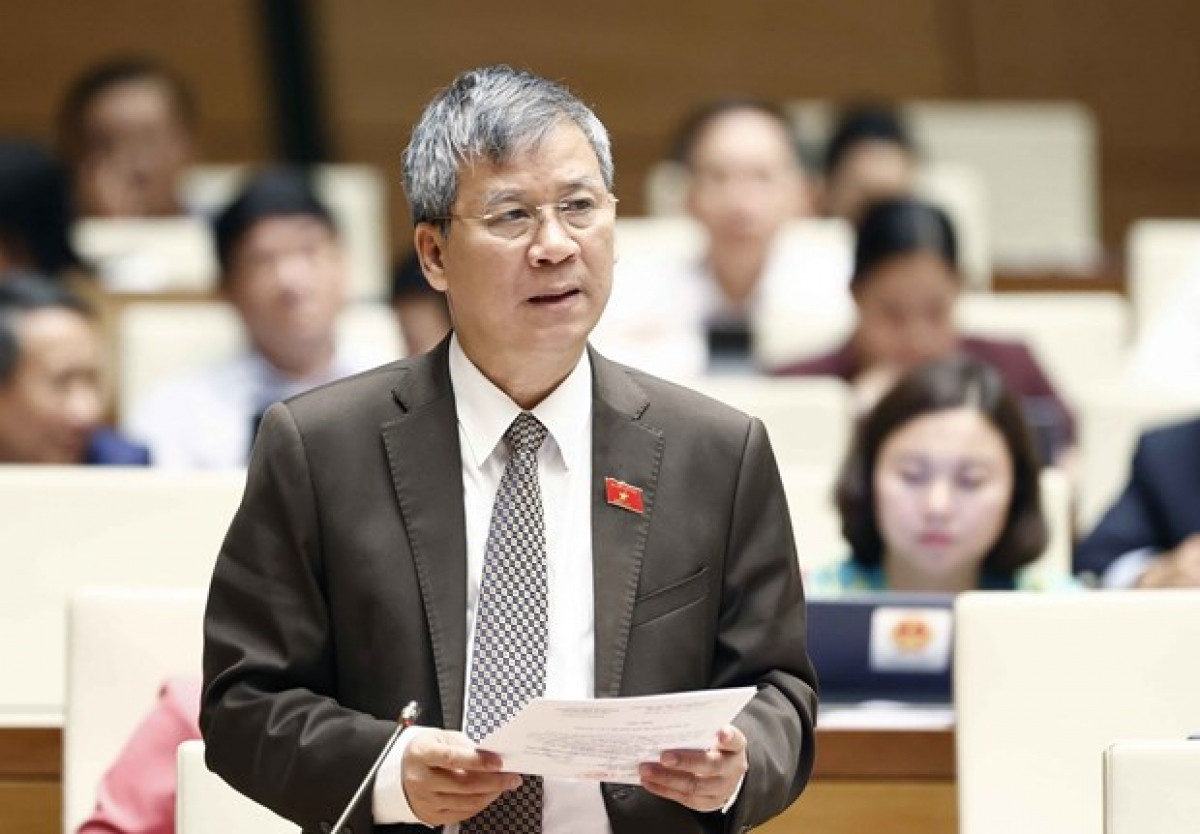Proposal to submit to the National Assembly Standing Committee a draft law on the right to gender reassignment and recognition of a new gender
The Gender Identity Law Project provides for the right to change gender and recognize a new gender, different from the gender at birth, at the request of citizens.
At the 13th session of the Law Committee held this week, delegate Nguyen Anh Tri, the Hanoi City National Assembly delegation, proposed to include the Gender Identity Law project in the 2024 Law and Ordinance Development Program. The Gender Identity Law project includes provisions on the right to change gender and recognize a new gender, different from the gender at birth, at the request of citizens.
 |
National Assembly delegate of Hanoi City Nguyen Anh Tri speaks. (Photo: Doan Tan/VNA) |
The National Assembly deputies' submission of proposals for law making is an exercise of the right to legislative initiative as prescribed in the Constitution, the Law on Organization of the National Assembly and the Law on Promulgation of Legal Documents.
According to delegate Nguyen Anh Tri, the lack of uniformity in the legal basis has led to a lack of openness in the perception and viewpoint of state management on gender re-affirmation for transgender people. State management agencies have difficulty in identifying and changing civil status documents for people who request to identify a gender different from their birth gender. In addition, transgender people do not have identity documents that match their desired gender, are psychologically traumatized and have to endure stigma and discrimination from society, leading to many difficulties in life.
“This Law on Gender Identity has two policies that address the rights and methods of recognizing a new gender. Specifically, the right to change the gender of citizens, citizens have the right to change their gender. At the same time, it sets out criteria for citizens to exercise their rights. Policy 2 is to recognize a new gender that is different from the gender at birth at the request of citizens with a new process and procedure consisting of 5 steps. This is the reason why we would like to propose the name of the Law on Gender Identity,” said delegate Nguyen Anh Tri.
In reality, transgender people in Vietnam are not fully counseled, assessed, and psychologically prepared before and after deciding to change gender due to the lack of available services, stemming from the lack of legal regulations for gender change. Many policy contents overlap with the policies of the Gender Transition Law project chaired by the Ministry of Health under the assignment of the Prime Minister to carry out legislative tasks. To date, the Government has not officially submitted a proposal to develop a Gender Identity Law. Therefore, the National Assembly's Law Committee recommends research and unification to save resources and avoid overlap.
Chairman of the National Assembly's Law Committee Hoang Thanh Tung suggested: "Regarding gender transition, clearly define the scope of regulation. Clearly identify gender identity or gender transition. Ensure consistency in the legal system. This is a proposal of the National Assembly Delegate, a legal initiative."
As of November 25, 2021, Vietnam's population is more than 98 million people, and Vietnam is estimated to have nearly 500,000 transgender people. Thus, about half a million people have not had their personal rights fully protected, and have even been violated. The percentage of transgender people who have ever been married is very small, only 1.4%, and the majority are single and have never been married. Of which, more than 81% of transgender people participating in the survey have never publicly disclosed their gender to the community.
